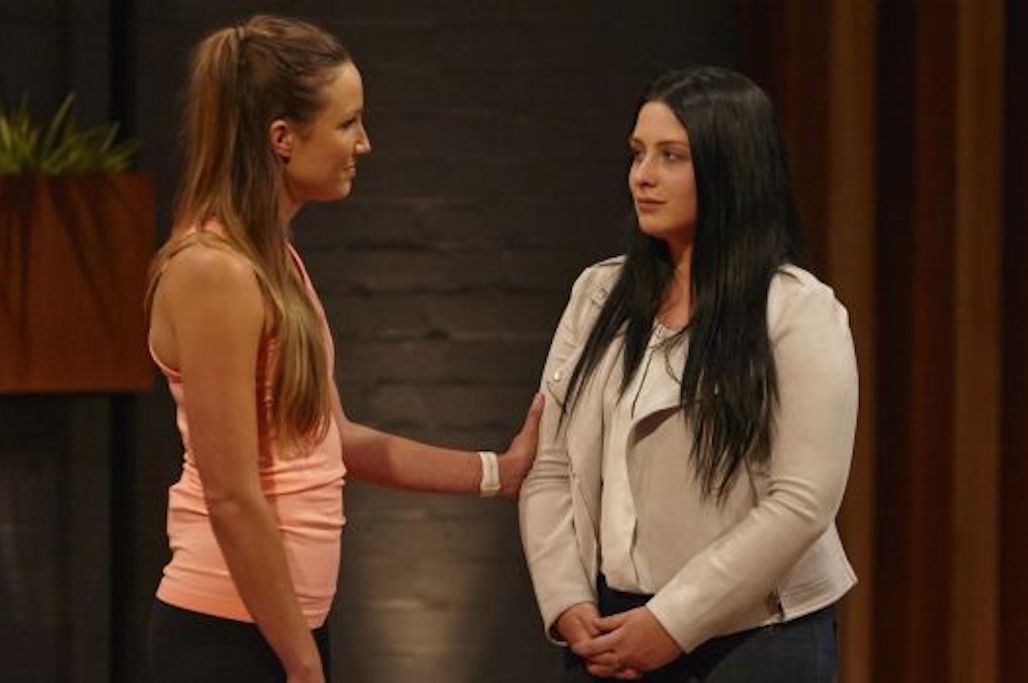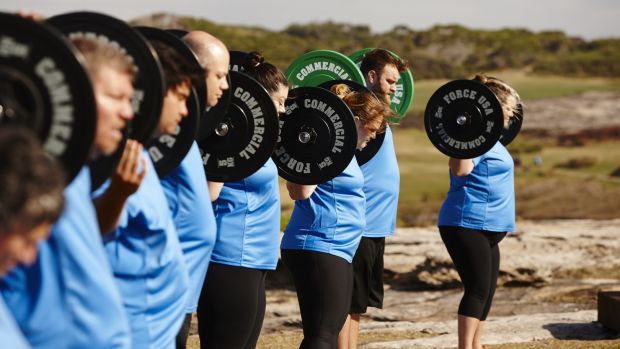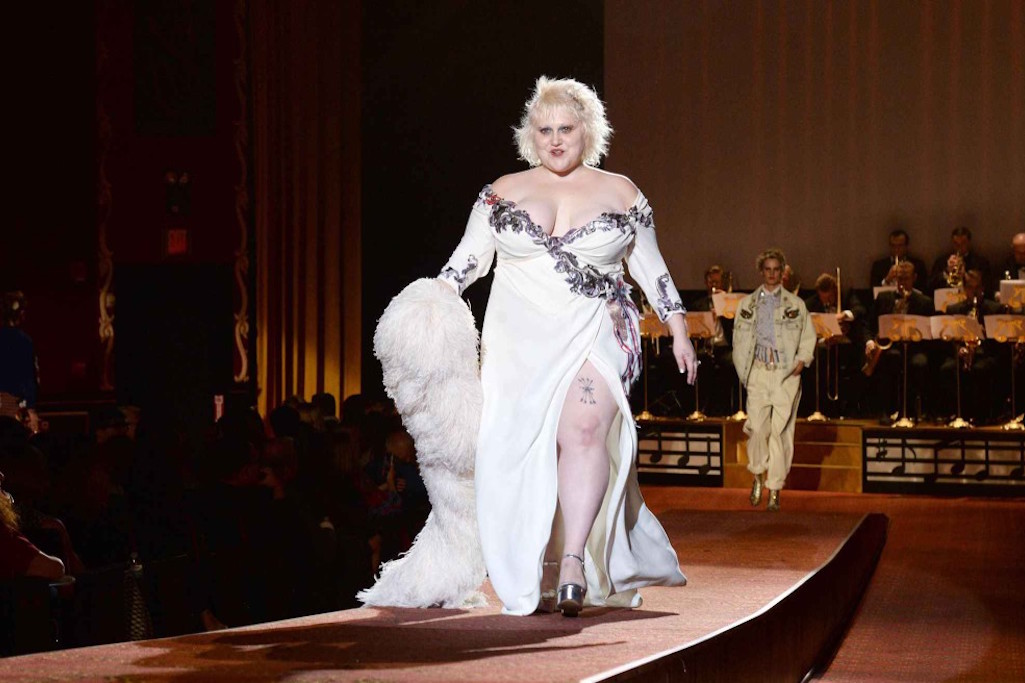Australia Is Rejecting ‘The Biggest Loser’; Are We Any Closer To Accepting Fatness?
That 78kg contestant sure did complicate things.

The Biggest Loser Australia is facing its lowest ratings of all time, Michelle Bridges has politely bowed out of the current season, and the show was cut from its coveted Sunday night spot after audiences found Channel Nine’s Married At First Sight far more entertaining. Is Australia ready to tune out for good?
In the lead-up to their 2017 season, the TBL team attempted a rebrand. The marketing material that emerged focused on their new “positive, holistic and exciting experience” and they added the word: ‘Transformed’ to the show’s title to ensure that audiences knew they were very, extremely, absolutely different.
The season is framed around terms like “empowerment”; it’s very firm that this is a story about health, not just weight. A producer even solicited a prominent fat activist (who wishes to remain nameless) and asked her to appear on the show in an effort to reframe TBL as a body positive experience. She declined, and told Junkee: “I was of course, gobsmacked that the producers would think that a show that relies on public fat shaming and humiliation could ever rebrand to any kind of body positive scenario.”
“The idea that the makers of the show want to ride the wave of the body positive trend is symptomatic of the mainstreaming — and watering down — of the space called the ‘body positive movement’. Rather than creating a safe space for all bodies (including those at the top of the scale) as was its original intention, the movement has now become the realm of the socially acceptable smaller fats. This co-opting and mainstreaming only works to once again minimise the visibility and respect of the people it was created for.”
In an odd choice (perhaps as part of their campaign to become more relatable), the producers this season chose a 78kg woman to be one of their participants. It’s a decision that the trainers have had to defend ever since. The significant public backlash around the decision is both heartening and telling. On the positive side, the backlash is completely valid; of course the average-sized contestant shouldn’t be competing in a show that is essentially an extreme weight loss competition. But, why should any of the other contestants be subject to such an experience either?
The backlash hints at one of the key reasons behind the show’s prior success: for many viewers, fat people are an ‘other’. Seeing an average-sized woman represented has made the public nervous — why is someone whose body resembles their own featured? But seeing fat people forced through unhealthy regimes, asked to bare their souls and bodies for the country — well, that just seems right. Right?
Good Old Trauma Porn
Reality shows are rarely created to show their participants in a positive light, but The Biggest Loser takes the cake when it comes to cruelty for entertainment’s sake. The show has always created a clear divide between contestants and the rest of the world, with a stark message: fat is bad. Fat can never be positive, or healthy, or — and this is critical — loved. It is something to be ashamed of, and ultimately lose.
From the beginning of each season, contestants are showcased in a ‘before’ photo. In fact, in this season they were even shown before and (theoretical) after photos — their bodies photoshopped into a garish societal ideal. They are stripped down physically and mentally, their anxieties and vulnerabilities are yanked out for public consumption, they are reminded over and over that they can be ‘fixed’. We hear their stories; how they gained weight, why they want to lose it, how their lives will change.
And this is the kicker: the show manages to both humanise and dehumanise its contestants. They are given stories and names, but for the benefit of both the trainers and the public, they are simply fat people waiting to be thin. To find redemption, they need to be pushed to — and often beyond — their physical and mental limits. The constructs that society still holds around the ideal body feed the show and allow it to not only keep running, but to continue to showcase pain and trauma for entertainment.

One contestant this season was filmed throwing up in a drain.
Strip it down and in its most basic form, TBL is a form of punishment. Those who compete on the show are constantly reminded that their actions created their bodies, and that they are the only ones that can change them — because, of course, those are bodies that must be changed. And perhaps, the worst element of all: the show is framed as a service. A helping hand, a positive kick up the arse; the trainers are there to change lives.
Who Needs Science, Anyway?
The team behind The Biggest Loser are the Donald Trumps of the fitness world. Extreme weight loss isn’t sustainable and can in fact, do more harm than good to the human body? Fake news! A woman who weighs 78kg isn’t fat? Fake news! There is, in fact, nothing wrong with fat? Fake, fake, fake.
Last year, a US study and a corresponding New York Times investigative piece proved that not only is extreme weight loss on shows like TBL dangerous, it is also extremely unlikely that the weight will stay off. It’s not simply that contestants return to their regular lives or routines, it’s that the body rejects the weight loss and rebels; metabolisms slow down, hormones change, and the weight creeps back on.
Another study, released early this year, showed that fat shaming isn’t just an awful thing to do — it can actually lead to poorer health. In an article by The Guardian last year, a former contestant of the US Biggest Loser discussed the extreme effects the show had on her physically and emotionally. Last year, researchers confirmed that using BMI classification as a measurement of health is essentially null and void. The foundations TBL was built on are getting eroded by the experts themselves.

The fact that the media are now choosing to address the issues surrounding shows like TBL and that scientists and researchers are investigating the truths behind weight loss and body image generally, are vital to the cultural change that we are now seeing. The stereotypes and damaging views that allowed TBL to not only be created, but to be successful, are being overridden by both facts and change in societal views.
Why I’m Not Watching
I don’t watch TBL for the reasons outlined above, but I also don’t watch it because, as a fat person, I don’t need any more reminders that society thinks my body is something to be ashamed of. It brings up old bile, taunting me with concepts that I once accepted as gospel: you’ll never be happy while you’re fat.
The idea that fat people could be happy with their bodies, whether they are healthy or unhealthy, does not seem to cross the minds of the creators and trainers on TBL. The idea that critiquing a specific body type — singling it out in the name of health or weight is incredibly damaging — doesn’t seem to cross their minds.
But the contestants have signed up for it, right? I have struggled with this: the contestants choose to become participants in the show, carrying their concerns and hopes along in a suitcase, hoping for change. And I have been them; putting my body through untenable regimes in an effort to force it into the ‘right’ shape. I can’t speak for the contestants or their choices, but from the outside I can take note of the fact that the show seems to do more harm than good in the long run.
It’s devastating to watch, and I struggle with the idea that hundreds of thousands of Australians are still watching — that kids, and adults, and fat people and thin people are watching. For fat people, it’s a slug-to-the-guts reminder that the wider public still isn’t on board with our bodies. For those that aren’t fat, it’s a reminder of what not to become.
The terrible ratings and public backlash that have emerged with this season of TBL have, however, given me a little bit of hope. Maybe, as a society, we are becoming more aware and educated on issues around bodies and health — and maybe, we aren’t going to put up with this crap for much longer. Or, perhaps trends have simply changed and we’re more interested in watching dating shows than TBL. Maybe it is a mixture of both — and either way, the show and its creators seem to be slowly but surely getting what they deserve.
–
Chloe Papas is a journalist and writer based in Victoria. You can find her on Twitter @chloepapas.
